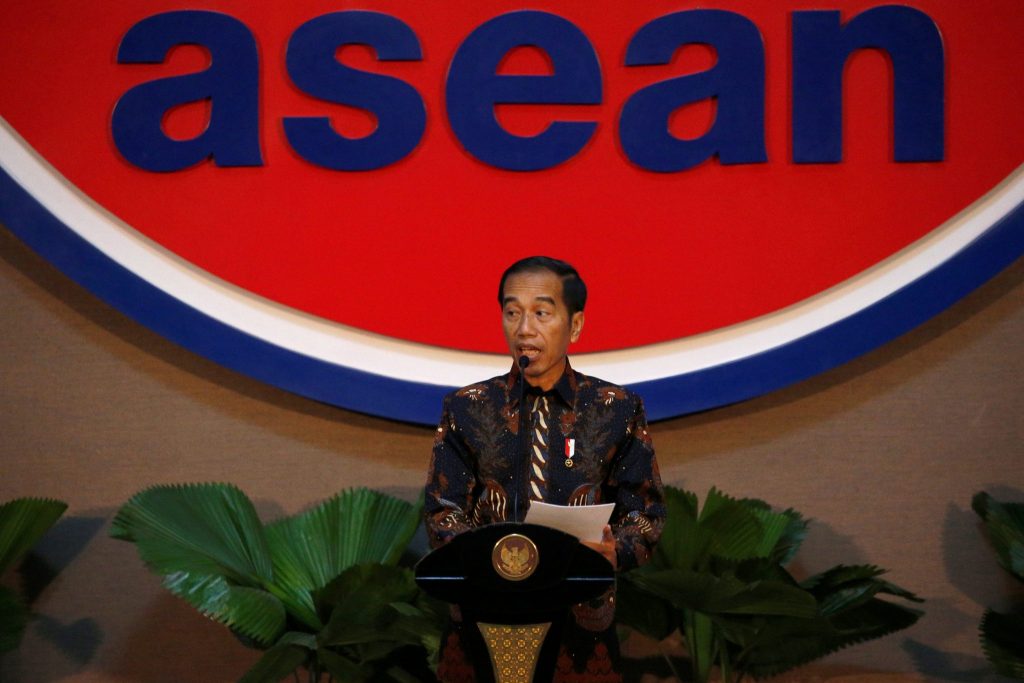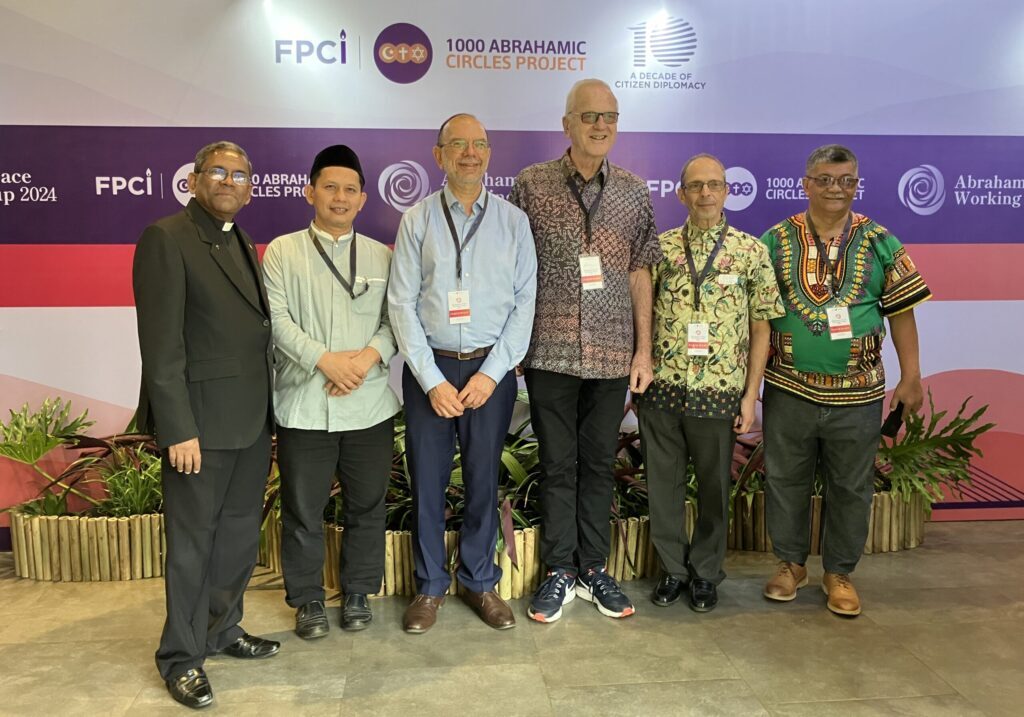Australia/Israel Review
Indonesian foreign policy encounters some harsh realities
Nov 24, 2021 | Giora Eliraz

The recent Taliban takeover of Afghanistan has received massive media coverage. However, largely left unnoticed was Indonesia’s role in the country, even though in recent years Jakarta had been extensively involved in the Afghan theatre in efforts to promote political reconciliation and a negotiated peace between Afghan factions.
Since 2017, Indonesia has been involved in mediating between the now-deposed Afghan government and the Taliban, responding to a request from the then Afghan President, Ashraf Ghani, to act as a peace facilitator. The mission was assigned to Yusuf Kalla, who was still Indonesian Vice-President at the time, but left office in October 2019.
Indonesia’s mainstream Islamic organisations have been associated with these efforts, including the Majelis Ulama Indonesia (MUI), the country’s top assembly of Muslim clerics, and the government’s two mass membership civil society partner organisations, Nahdlatul Ulama (NU) and Muhammadiyah. Jakarta even facilitated a dialogue between Taliban representatives and Indonesian clerics.
Indonesia also made some efforts at the grassroots level, including by attempting to empower Afghan women as peace agents. Today, Indonesia has ample reason to be concerned about their fate, watching the dramatic political changes in Afghanistan that have brought back the gloomy days of the ruling “Taliban model” of governing a majority Muslim society, which stands sharply opposed to the Indonesian one.
Closer to home, a few months earlier in Myanmar, a feeble process of democratic reforms was stopped when the military took power through a coup d’état, bringing the country close to a civil war. As in Afghanistan, Indonesia has not been watching these developments as a mere spectator.
After surmounting severe difficulties during earlier years of transition to democracy in the late 1990s and early 2000s, Indonesia has gained confidence in its new democratic model of governance. This confidence has manifested in an aspirational foreign policy that includes an ambition to promote democracy and support conflict resolution and peace building, which is the background to Jakarta’s Afghan intervention.
Thus, since 2003, Indonesia has sought to promote an agenda of democracy and human rights into the core values of the Association of Southeast Asian Nations (ASEAN); Indonesia is the powerhouse of this ten-nation association. Consequently, in 2007, a new ASEAN Charter was signed which also obliges its members to strengthen democracy; enhance good governance and the rule of law; and to protect human rights and fundamental freedoms.
Since then, Indonesia has marked Myanmar as a primary target for instigating and encouraging political reforms, given that the atrocious human rights record of Myanmar’s ruling junta often embarrassed ASEAN in the international arena. In 2008 Indonesia established, in cooperation with Australia and with US blessing, the Bali Democracy Forum (BDF) – an intergovernmental forum for the development of democracy in the Asia-Pacific region through sharing its experience. In addition, the Institute for Peace and Democracy (IPD) was established to implement the efforts of the BDF.
Indonesia’s interest in supporting political reforms in Myanmar became more evident after the junta officially dissolved itself in 2011, largely due to international pressure, and a seven-step road map for democratic reforms was announced. The IPD started working with Burmese counterpart organisations to share Indonesia’s experience with democratisation.
In practice, Indonesia has faced considerable difficulties in getting the very heterogeneous ASEAN community to significantly commit to this mission of encouraging democratisation and political reform. ASEAN’s ten member states are governed by a variety of different political systems and only a minority are democracies, with Indonesia itself the most stable, substantive democracy in the group. Furthermore, ASEAN is guided by the principle of non-interference in the domestic affairs of its members, which are highly protective of their national interests and autonomy. In addition, the organisation has adopted a consensus-based decision-making mechanism. Obviously, this makes collective action very difficult.
Despite this, ASEAN, informally led by Indonesia, seeks to be a significant actor, attempting to peacefully stabilise Myanmar and to bring the country back to the path of political reform.
It took a few months until ASEAN achieved a consensus in late April on a Five-Point Consensus plan for resolving the Myanmar crisis, including: cessation of violence; “constructive dialogue” between the various parties; the appointment of an ASEAN special envoy to mediate this dialogue; providing humanitarian assistance; and a visit to Myanmar by the special envoy and delegation to meet with all parties concerned.
Though some ASEAN members apparently disapprove of an assertive approach towards Myanmar’s junta in pushing the ASEAN plan, the organisation recently made the unprecedented decision to invite neither the Myanmar junta’s leader, nor any representative of the Myanmar opposition shadow National Unity Government for talks. Instead, Myanmar was invited to dispatch a “non-political representative”.
This decision is reportedly the result of the growing frustration in ASEAN at the junta’s evasion of any meaningful progress toward implementing the Five-Point Consensus. Indonesian President Joko Widodo argued that this exclusion of Myanmar’s military chief from the summit was a difficult but necessary decision as a result of the reluctance of the military regime to accept ASEAN’s “helping hand” in resolving its lasting political crisis.
Finally, far from Southeast Asia, in Tunisia, the single surviving democratic achievement of the so-called “Arab Spring” has become a much more doubtful example of democracy since late July. That’s when Tunisian President Kais Saied dismissed the Prime Minister, suspended the parliament and gave himself both legislative and executive powers.
Actually, Tunisia’s transition to democracy has constantly faced major obstacles, such as political instability and a deep economic crisis that has only been exacerbated by the coronavirus pandemic.
Once again, Jakarta is not merely a passive observer in the Tunisian case but rather an “invested” actor watching its foreign policy achievements and hopes potentially fade away and being forced to rethink its policies. Post-reformasi Indonesia, with its foreign policy agenda of promoting democracy, had sought to be a supportive partner for Tunisia as it took steps on the democratic path – steps now potentially being reversed. Back in 2011, soon after the outbreak of the Arab Spring, both Egypt and Tunisia had asked far-away Indonesia to assist them in transitioning to democracy. The IPD was soon involved in organising workshops as a platform for Egyptian-Indonesian dialogue. In early 2012 Tunisian delegates joined this Egyptian-Indonesian dialogue.
Since 2013, such post-Arab Spring cooperation on democracy-building between Indonesia and Middle Eastern countries has been limited to Tunisia, involving public officials and civil society actors and reflecting a shared interest in demonstrating that Islam and democracy are compatible. Notably, the two significant competing political forces in Tunisia, the secularists and the Islamists, seemed to share a commitment to political reforms. Today, Indonesia can do little but sit back and hope Tunisia makes a return to democracy and may yet fulfill Jakarta’s post-Arab Spring hopes.
At first glance, Myanmar, Tunisia and Afghanistan do not seem to have much in common. But the one factor uniting all three cases is that, this year, each has sustained a blow to processes of democratising political reform into which Indonesia had invested considerable efforts and hopes.
Indeed, these three cases also demonstrate the great difficulty of making and sustaining a successful transition to full-fledged democracy from authoritarianism. But at the same time, these cases also offer some perspective to appreciate the considerable distance Indonesia has come in its own democratising journey over slightly more than two decades, even if there is still more left to do before it becomes a completely mature democracy.






